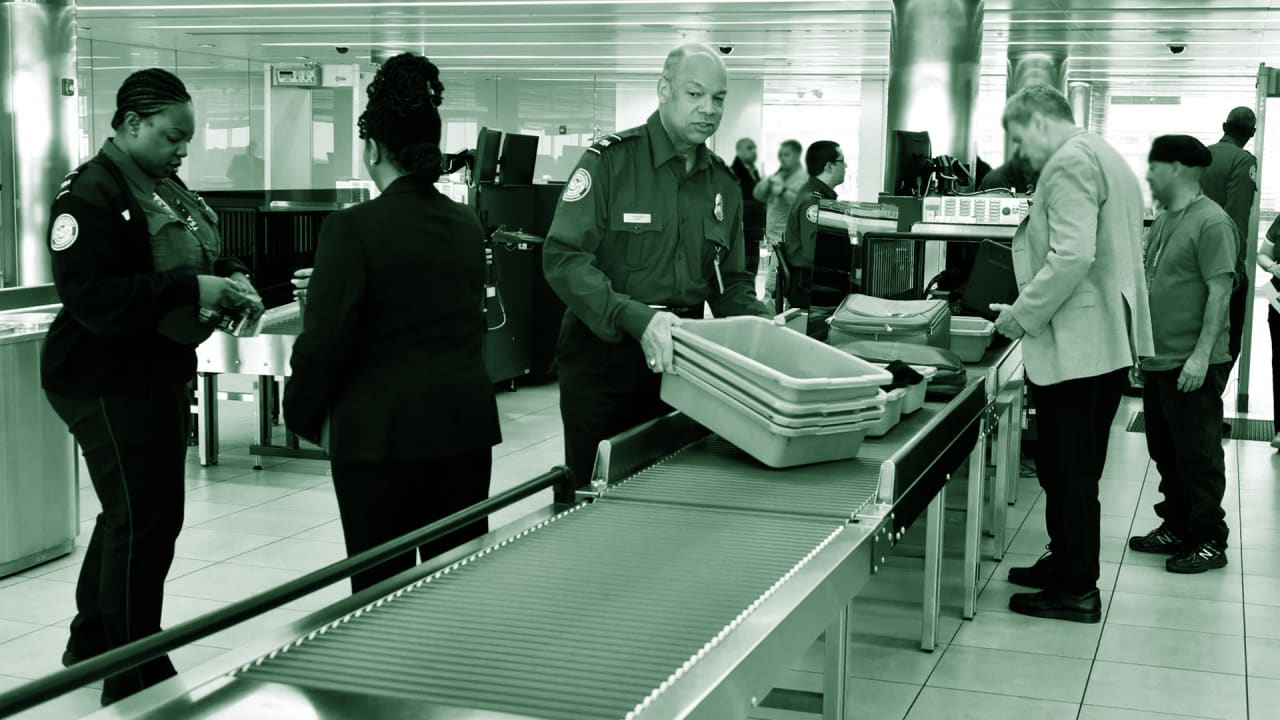
CBD is now legal to use in many US states for medical purposes, with some even going so far as to legalize the use of recreational marijuana completely. In terms of federal law, however, CBD is still classed as a Schedule 1 drug. This means that despite being legal to use at the state level, you are technically breaking federal law.
This conflict in the law is very rarely a problem when going about daily life in your home state. State law seems to trump federal law, and in the states where CBD is legal, it is sold and used without any issues.
Where the law does become a little more complicated, though, is when flying between states. The TSA has regulations in place that dictate what you can and cannot take on a plane with you. Many people are unclear as to the legal position on this issue and err on the side of caution, deciding to avoid traveling with CBD oil.
For others, though, this is not an option, and the thought of going even a few days without their regular dose of CBD is enough to force them to stay locked into their home state.
So, and other CBD products, or should you continue to leave them behind when traveling out of state? Let's take a look.
What is the TSA?
TSA stands for Transpiration Security Administration. It’s a department within the US Department of Homeland Security. Responsible for all transport-related security with the US, most people know the TSA as the people who run security checks at airports.
TSA stands for Transpiration Security Administration. It’s a department within the US Department of Homeland Security. Responsible for all transport-related security with the US, most people know the TSA as the people who run security checks at airports.
TSA agents have powers that many other law forces do not. For example, the TSA has the right to open your checked bag as part of random security checks, even if it is padlocked. This is why most padlocks sold in the US are TSA compatible, allowing them to use a master key to open your case rather than having to break your lock apart.
The TSA is also responsible for setting the rules as to what you can and cannot take on a plane when traveling through a US airport. These regulations tend to have a knock-on effect on airport security around the world, setting the bar for what is considered safe during air travel.
While most items that the TSA has banned have been chosen as they are seen to pose a security risk while up in the air, it is also a way to control the movement of illegal substances. With every state having different laws governing the use of CBD, how have the TSA approached this issue?
TSA rules regarding CBD
Until recently, the TSA had strict rules in place, stating that flying with CBD oil or any marijuana-related product was forbidden. This meant that even if you were flying from one state where CBD is legal to another, you could not have CBD with you while in transit. If found in possession of CBD products, the TSA would follow the same procedures as they do with other drugs. Instead of getting on a plane, you could easily find yourself having to answer to a local law enforcement officer.
Until recently, the TSA had strict rules in place, stating that flying with CBD oil or any marijuana-related product was forbidden. This meant that even if you were flying from one state where CBD is legal to another, you could not have CBD with you while in transit. If found in possession of CBD products, the TSA would follow the same procedures as they do with other drugs. Instead of getting on a plane, you could easily find yourself having to answer to a local law enforcement officer.
This all changed in May 2019, however, when the TSA quietly updated the ‘What Can I Bring’ section of their website. It now states that you can carry medical marijuana in both your carry-on and checked bags as long as you conform to the ‘Special Instructions,’ which are not exactly easy to understand.
CBD items must contain less than 0.3% THC and be approved by the FDA in line with the Agriculture Improvement Act of 2018.
This is the first time that the TSA has made a distinction between hemp-derived products and those extracted from marijuana plants. Hemp products generally contain almost no THC, making them a much safer option when traveling through an airport.
Final thoughts on flying with CBD
The law as to which CBD products you can and cannot take onto a plane with you still remains slightly unclear. Recent changes are, however, the first step to the TSA recognizing that, for some people, flying without their regular dose of CBD is simply not an option.
The law as to which CBD products you can and cannot take onto a plane with you still remains slightly unclear. Recent changes are, however, the first step to the TSA recognizing that, for some people, flying without their regular dose of CBD is simply not an option.
Under the Medical Marijuana section of the TSA’s website, it states at the bottom of the page that “The final decision rests with the TSA officer on whether an item is allowed through the checkpoint.”
Given that the TSA will still contact law enforcement officers if they find you to be in possession of marijuana and CBD-infused products that contain more than 0.3% THC, there is still a degree of risk when flying with CBD.
Whether you decide to fly with CBD products comes down to weighing up the health benefits of having it for your trip against the risk of coming face to face with a TSA officer who is having a bad day.